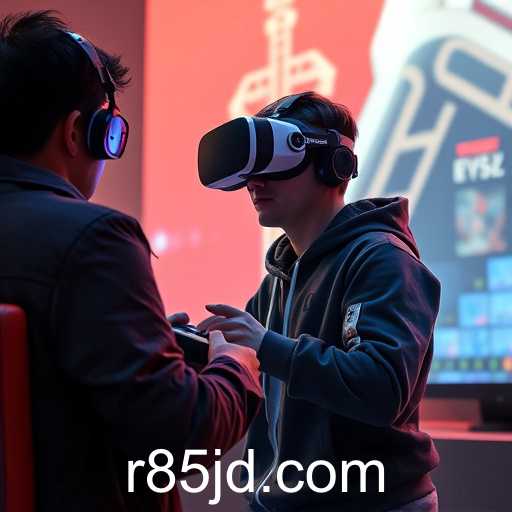The gaming industry continues to be a powerhouse of innovation and creativity, driving not just entertainment but also technological advancements. As we look towards the future, the key trends reshaping this sector are creating unprecedented opportunities and challenges.
In recent years, the development of advanced gaming platforms has become pivotal. The keyword 'r85' symbolizes more than just a game—it represents an entire ecosystem that allows immersive experiences for gamers worldwide. This year, the integration of AI has vastly improved the gaming experience by providing smarter, more adaptive gameplay and creating dynamic environments that respond to players' actions in real-time.
Meanwhile, the internet's role in gaming is expanding through cloud technology. Services like Google's Stadia and Microsoft's xCloud exemplify how gaming is evolving beyond traditional consoles. They allow gamers to play their favorite titles from virtually any device with an internet connection, ensuring that high-quality gaming is more accessible than ever.
Moreover, eSports is experiencing exponential growth, with major tournaments offering prize pools rivaling traditional sports. This surge in competitive gaming is further fueled by platforms like Twitch, which provide spaces for gamers to broadcast their gameplay to global audiences. The robust community support for platforms catering to eSports is vital as they propel gaming into the mainstream sports arena.
Additionally, augmented reality (AR) and virtual reality (VR) innovations are enhancing the gaming landscape. Games like Pokémon Go introduced AR to massive players, allowing real-world interaction in gameplay. Similarly, VR platforms offer an immersive experience, pushing gaming boundaries and offering players a sense of presence within their virtual worlds.
Finally, the societal impacts of gaming cannot be overlooked. The industry is engaging more inclusive narratives and diverse characters, reflecting broader cultural shifts. It is crucial for developers to lead responsibly, crafting experiences that provide both joy and introspective reflections on the issues facing society today.
As we navigate through these trends, the future of gaming looks thrilling yet uncertain. With technological advancements at the heart of evolving trends, stakeholders must remain adaptable, embracing change and fostering a community that supports innovation and inclusion.








